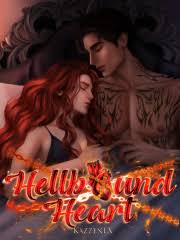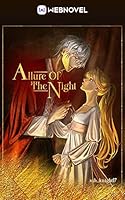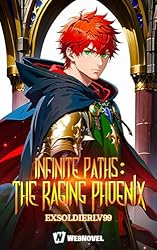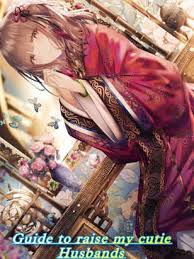The Story in 3 Sentences
A lonely, terrifying Lycan, believed to be the last of his kind and thus doomed to solitude, finds his world upended when a fated connection unexpectedly binds him to Zuri, a woman marked by suffering and rejection from her own kind.
Their dark, possessive romance ignites a brutal struggle for survival, forcing them to navigate treacherous pack politics, ancient curses, and the cruel machinations of those who see Zuri as nothing more than a vessel or a pawn.
The journey culminates in profound sacrifice and bittersweet hope, leaving behind a legacy in their daughter, whose very existence challenges the laws of their world and whose heritage remains a poignant, unanswered question whispered by grieving fans.
Why It Stands Out
1. The Unbreakable Shell in a World of Claws
The story’s core brilliance lies in its unflinching portrayal of Zuri’s resilience. She is not a damsel saved, but a survivor forged in fire, her spirit bending under relentless torment yet never truly breaking, making her eventual, hard-won agency a cathartic triumph against a backdrop of darkness.
2. Possession as Poetry, Not Just Power
It transcends the typical alpha trope by weaving Khaos’s terrifying, all-consuming obsession into a complex tapestry of loneliness and desperate, almost sacred, connection. His love isn’t gentle; it’s a force of nature, a claiming that is as much about finding his own salvation in her as it is about claiming his mate, turning dark romance into a hauntingly beautiful, if brutal, ballad.
3. A Curse That Feels Like a Character
The novel’s worldbuilding shines through its central, tragic premise—the Lycan curse and the “Shell” prophecy. This isn’t just a plot device; it’s a living, breathing weight that shapes every interaction, fuels the conflict, and elevates the stakes, making the characters’ fight against destiny feel visceral and profoundly personal.
Characters That Leave a Mark
There’s Rhett – the cunning and bold older brother whose intelligence and sense of justice for the pack often put him at odds with his family’s darker ambitions, making him a complex figure of potential redemption or ruin.
You’ll meet Declan, who appears as the quiet, unassuming second son, but whose hidden depths and strategic mind reveal him to be the chillingly effective mastermind pulling strings from the shadows, his calm demeanor masking a dangerous intellect.
And Silas? They’re the one who embodies reckless cowardice, the perfect, easily manipulated pawn whose stupidity and lack of foresight make him a constant source of tension and a catalyst for the worst decisions within the Blackthorne lineage.
The Flaws Fans Debate
The most persistent and universal criticism centers on the poor translation quality and grammatical errors, which many readers report as being so frequent and severe that they disrupt immersion and force rereading to decipher the intended meaning.
Some readers find the pacing uneven, particularly in the early chapters where the titular Lycan’s presence is delayed, leading to frustration and a perceived disconnect between the story’s setup and its advertised premise.
The male lead, Khaos, is criticized by a segment of the audience for his extreme arrogance and the FL’s frequent state of helplessness or obsession, which can feel frustrating and unbalanced, bordering on unhealthy even within the dark romance genre’s allowances.
Must-Experience Arcs
Ch. 1–50: The Marked Shell and the Lycan’s Gaze – This opening arc establishes Zuri’s brutal reality as a rejected mate and introduces the terrifying, enigmatic Khaos, whose sudden, possessive claim on her shatters her world and sets the core conflict in motion, moving from humiliation to a dangerous, uncertain sanctuary.
Ch. 100–180: Whispers of Blood and Betrayal – The middle arc delves into the intricate web of pack politics and ancient curses, as Rhett and Declan’s opposing agendas come to light, Khaos’s past and the true nature of the “Shell” are explored, and Zuri begins her painful, defiant climb towards reclaiming her power.
Ch. 240–292: The Cost of a Legacy – The final arc is a heart-wrenching crescendo of sacrifice and consequence, where love is tested against destiny, leading to a devastating loss and the birth of a daughter whose unknown heritage leaves a haunting, beautiful ambiguity that lingers long after the last page.
Killer Quotes
“He looked at her like he had never seen anyone before. The sight of her calmed the rush in his ears, the beat of his heart and finally he was able to focus again…”
“She is no longer your responsibility. She is mine to deal with now.”
Cultural Impact
The novel has sparked intense, emotional fan discussions, particularly around its tragic ending and the unresolved fate of the daughter, with readers pleading for a sequel to answer the burning question of her lycan heritage or divine blessing.
It has developed a dedicated, if niche, fanbase who passionately defend its dark, emotional core despite its technical flaws, often recommending it with the caveat “just push through the grammar.”
The story’s themes of resilience and dark, possessive love have made it a frequent recommendation in online communities focused on dark romance and omegaverse tropes, solidifying its place as a cult favorite known for its ability to evoke strong, visceral reactions.
Final Verdict
Start Here If You Want:
A dark, emotionally devastating romance that doesn’t shy away from pain but rewards you with a powerful, resilient heroine.
A unique twist on the shifter genre where the “last of his kind” trope is executed with genuine pathos and world-altering consequences.
A story that prioritizes intense, character-driven drama and a haunting, ambiguous ending over neat, happy resolutions.
Study If You Love:
Exploring how trauma and resilience are portrayed in dark fantasy romance, and how a character’s agency can be reclaimed in the most oppressive circumstances.
Analyzing the narrative function of “fated mates” and “curses” as more than just plot devices, but as central, thematic pillars that drive character development and worldbuilding.
The use of morally grey, even villainous, protagonists in romance and how their love stories can be compelling without sanitizing their flaws or the darkness of their world.
Avoid If You Prefer:
Flawless, professionally edited prose; the translation issues are a significant and acknowledged barrier for many readers.
Stories with clear-cut, happily-ever-after endings; this novel’s conclusion is deliberately bittersweet and open-ended, focusing on legacy over closure.
Romances where the power dynamic is balanced from the start; the relationship here is deeply unequal and often uncomfortable, rooted in possession and survival before it evolves.





